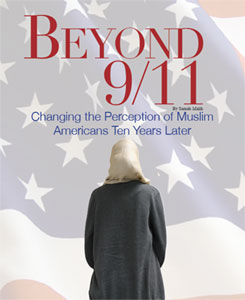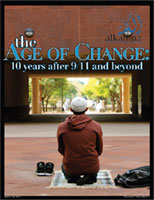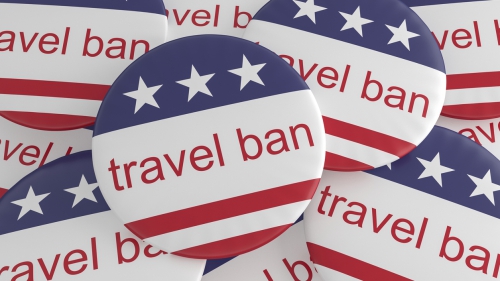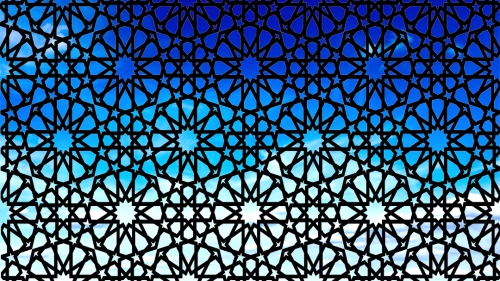Beyond 9/11: Changing the Perception of Muslim Americans
 |
On the morning of December 7th, 1941, one of the most catastrophic foreign attacks on American soil devastated the Island of Hawaii. Japanese fighters, bombers, and torpedo planes launched a surprise aerial assault on Pearl Harbor, sinking four U.S. battleships, three cruisers, and 188 aircrafts- killing thousands of Americans.
That morning, while panic and paranoia engulfed our nation, Americans across the country awoke to a frightened world in which uncertainty clouded the future. Sixty years later, on September 11th, 2001, we watched as history repeated itself.
The day after September 11th, headlines reading "New Day of Infamy", "War At Home" and "Terror," flooded media outlets across the nation. A frightening parallel between Pearl Harbor and 9/11 left the country in panic. Less than a month later, the U.S. launched a global and border-less "War on Terror."
Soraya Azzawi, a third year Political Science major at UC Irvine puts it simply, "I cried. Nothing positive can come out of the massive loss of human life, whoever those people may be. What hurt the most is the fact that my tears when the towers fell, my indignant [feelings] at the murder of 3,000 Americans didn't count, simply because I was Muslim." Eleven years after this unforgettable tragedy, the psychological and emotional trauma continues to take its toll.
Shakeel Syed, Executive Director of Shura Council describes that "time healed grief. But anxieties got compounded and gave birth to panic, leading to hate and bigotry. This phenomenon has now become a norm and an acceptable one at the societal level."
In the last eleven years, the actions of a small minority who corrupted Islamic values have become the mainstream image of Islam. Just as Japanese Americans were isolated due to the actions of "their people," American Muslims have faced the consequences of the actions of radical extremists. Innocent lives have been stolen and irrational fear and paranoia have been fueled. In essence, the Muslim community has been forced into a internment camp.
Kathy Masaoka, the co-chair for Nikkei for Civil Rights & Redress, recalls that "after 9/11, the government began creating an atmosphere of fear, people felt that [fear] after Pearl Harbor too. There was a lot of hate towards enemies, not making a difference between who the enemy is."
In February of 1942, two months after the start of World War II, America's relationship with the Japanese-American community shifted dramatically as President Franklin D. Roosevelt signed Executive Order 9066. According to the United States Department of Justice, this authorized the removal and internment of 120,000 Japanese-Americans. Men, women, and children were detained and forced to live in internment camps, surrounded by barbed wires and under poor living conditions, for up to four years. Following WWII, when the internees were released, they faced profound difficulties in their efforts to reintegrate into society.
"Both sides of my family lost everything they had [...] their lives were disrupted by Pearl Harbor," Masaoka describes.
The Masaoka's, like many other Japanese, were criticized and misrepresented by fellow Americans, despite having integrated into society.
"People would say things like, 'a Jap is a Jap, they can't be anything but Japanese.' "
While Japanese-Americans living in the United States thought of themselves as very American, they were seen as strangers, a prevalent notion believed by many. Azzawi, who was in fifth grade at the time of 9/11, describes how she was treated as less American in the years after the tragedy.
"People asked me if I was related to Osama Bin Laden, simply because I happen to be an American who practices Islam. At the time, I couldn't understand, what exactly segregated me from everyone else? Why, if I was born, raised, and living here, just like everyone else, did I not count as an American citizen?"
Haithem Abdelfattah, a Public Health Science major and senior at UC Irvine describes how Muslims "felt estranged to the land they had been living in for so long; almost like they didn't belong."
Another key parallel Masaoka draws is the victimization of members of both communities. "There was a lot of surveillance of the community. After Pearl Harbor, everybody had to report and families had to register. Similarly, following 9/11, Muslim-Americans were identified and picked up by the FBI."
Members of the media and political officials fueled a fear of the Japanese community during World War II, and the cycle is repeating with the Muslim community now. With such influential leaders of society at the forefront of spreading bigotry, it was and continues to be difficult for communities to speak out in opposition. However, despite the adversity the Japanese community faced, they have made substantial progress in reconciliation and reintegration of their community into American society.
A key step in this process included the unity and persistence of the Japanese community. Various organizations, such as the Japanese American Citizens League, formed to condemn the unjust actions of the government and to defend civil rights of the Japanese people.
"They pushed their community to become more politically active and supported Japanese politicians running for office," Masoaka describes. "Later, Nikkei for Civil Rights and Redress formed to not only fight for their rights and provide services, but also to support other groups. They saw themselves connected and realized they need to speak out for all of society."
Following the attacks on Pearl Harbor, various marginalized minority groups and organizations united and emerged from the hardship of prejudice as more empowered people.
Many Muslim communities and organizations have taken steps to reclaim their identity in a post-9/11 America. There has been an emergence of Muslims in the media and politics, and they continue to positively represent the community. There are currently two openly Muslim individuals serving as members of congress, as well as many public policy officials working in government programs.
A key step in this process is "reclaiming our person-hood as proud Muslims and patriotic Americans," Syed says. "We must get rid of the self-imposed victim psyche."
Muslims must not compromise their beliefs nor isolate themselves from the rest of society. Rather, it is essential they share their Islamic practices with others. Syed also explains that Muslims must educate, empower, and mobilize themselves at an individual level and in their respective neighborhoods. It is crucial for the Muslim community to get involved in civic activities, whether it be City Council or Student Government. This will allow others to realize that Muslims are ordinary American citizens.
"Ten years from now, I hope to see Muslims in America as the ones who are changing the policies, the ones who are lobbying for representatives that can speak for us, the ones who are leading society toward a better future," says Abdelfattah.
It seems as though, ten years from now, just as Japanese-Americans emerged from their hardship as an empowered and proactive community, so too will Muslim-Americans.
"I see Muslims struggling and Islam thriving in the next decade," says Syed. "Their struggle will continue because of geo-politics, and Islam will thrive despite of it. I envision the Muslim community on the path of upward progress and inevitably becoming a reasonable force in different facets of life."
*****
Samah Malik is a first year Film and Media Studies major at the University of California, Irvine.
Article provided by Alkalima Magazine, The Muslim Student Magazine at the University of California, Irvine.
To see more articles please visit http://alkalimauci.wordpress.com/
Related Suggestions




















